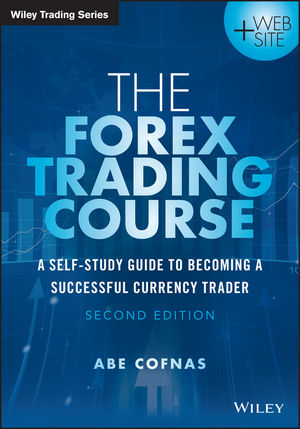The Ultimate Forex Trading Course for Mastering Currency Markets
The Ultimate Forex Trading Course for Mastering Currency Markets
Blog Article
Recognizing the Basics of Money Exchange in Today's Global Market
In an increasingly interconnected global economy, grasping the principles of money exchange is crucial for stakeholders across numerous fields. As main financial institutions put in influence and technological advancements improve money trading, the ramifications for worldwide commerce are far-ranging.
The Fundamentals of Money Exchange
Money exchange is an essential aspect of the global economic climate, assisting in international profession and financial investment. It involves the conversion of one money into another and is crucial for services, governments, and people who take part in cross-border deals. The currency exchange procedure takes location in the forex market (Forex), which is the biggest and most liquid financial market on the planet, operating 24-hour a day, five days a week.
At its core, money exchange is driven by supply and demand characteristics. Currencies are sold pairs, such as EUR/USD or GBP/JPY, and the currency exchange rate between them shows just how much one money is worth in terms of one more. This price varies continually as a result of trade flows, capital movements, and other market activities.
Participants in the Forex market variety from big economic institutions and multinational companies to specific capitalists and tourists. Each participant may have different goals, such as hedging versus exchange price threat, guessing on money movements, or helping with worldwide purchases. Comprehending the fundamentals of currency exchange is vital for making educated choices in the international market, as currency exchange rate can significantly impact the cost of goods and solutions, financial investment returns, and financial security.
Variables Influencing Exchange Fees
Currency exchange rate are formed by a complicated interaction of different economic factors, reflecting the relative toughness and security of nationwide economic climates. Secret among these factors is interest price differentials. Higher passion prices use loan providers much better returns relative to various other nations, drawing in more international funding and triggering the currency to value. On the other hand, inflation prices play a critical duty; money in countries with reduced rising cost of living rates tend to value as buying power increases loved one to higher-inflation economic climates.
Additionally, trade equilibriums affect currency worth. A nation with a considerable profession excess generally sees its money value due to increased foreign need for its goods and services, while a profession deficit can deteriorate the currency.
Political security and financial efficiency are crucial as well; countries viewed as low-risk locations for financial investment often tend to see their money value. forex trading course. Market speculation can likewise drive currency exchange rate changes, as investors prepare for future activities based upon existing economic indicators and geopolitical events. These elements collectively add to the dynamic nature of currency exchange rate in the worldwide market
The Role of Reserve Bank

Central banks additionally engage in foreign exchange treatments to remedy excessive volatility or imbalances in currency exchange rate. These treatments may involve acquiring or offering foreign currencies to maintain a desired currency exchange rate level. Additionally, main financial institutions hold significant foreign exchange books, which can be deployed purposefully to support their money.

Modern Technology and Currency Trading
While reserve banks form the overarching landscape of currency exchange, technological innovations have actually transformed the auto click here for info mechanics of money trading itself. The spreading of digital platforms has actually equalized accessibility to fx markets, allowing private investors to participate alongside institutional financiers. On the internet trading systems, equipped with real-time data and analytical tools, assist in educated decision-making and have actually added to increased market liquidity.
Algorithmic trading, powered by advanced software application, has actually changed the rate and efficiency of currency trading. Algorithms perform trades based on predefined criteria, reducing human intervention and decreasing the time required to capitalize on market movements. This automation enhances precision in trade execution and aids in the management of complex trading strategies. Additionally, the surge of expert system and equipment understanding formulas uses anticipating analytics, enabling traders to anticipate market fads with better precision.
Blockchain modern technology likewise promises a transformative effect on money trading. By making certain openness and lowering deal expenses, blockchain can improve settlement processes, potentially mitigating threats connected with conventional trading approaches. Furthermore, cryptocurrencies, underpinned by blockchain, have presented a new measurement to currency trading, motivating market individuals to adapt to an advancing monetary ecosystem. As technology proceeds to evolve, its impact on money trading will likely strengthen, forming future market dynamics.
Influence On Global Profession
In the interconnected landscape of global trade, money exchange plays a pivotal function fit financial relationships between countries. Exchange prices influence the cost of exporting products and solutions, influencing competitive positioning in worldwide markets. A solid money can make a country's exports extra expensive and less attractive on the worldwide phase, possibly reducing market share. Conversely, a weaker money can boost export competition yet may increase the cost of importing necessary items, influencing trade article source balance.
Money changes can additionally bring about financial uncertainties, making complex lasting preparation for international companies. Companies typically hedge against these risks through economic tools to support expenses and incomes. Exchange prices influence international direct investment (FDI) choices, as financiers seek desirable problems to take full advantage of returns, impacting resources streams across boundaries.
Furthermore, governments make every effort to preserve secure exchange prices to promote predictable trading problems, in some cases interfering in forex markets to achieve financial objectives. Reserve banks might adjust passion rates or apply monetary plans to influence money stamina, therefore impacting profession dynamics.
Conclusion
A thorough grip of currency exchange fundamentals is necessary for navigating the complexities of the worldwide market. Exchange rates, shaped by rate of interest prices, rising cost of living, and financial development, are pivotal in identifying currency assessments.
Report this page